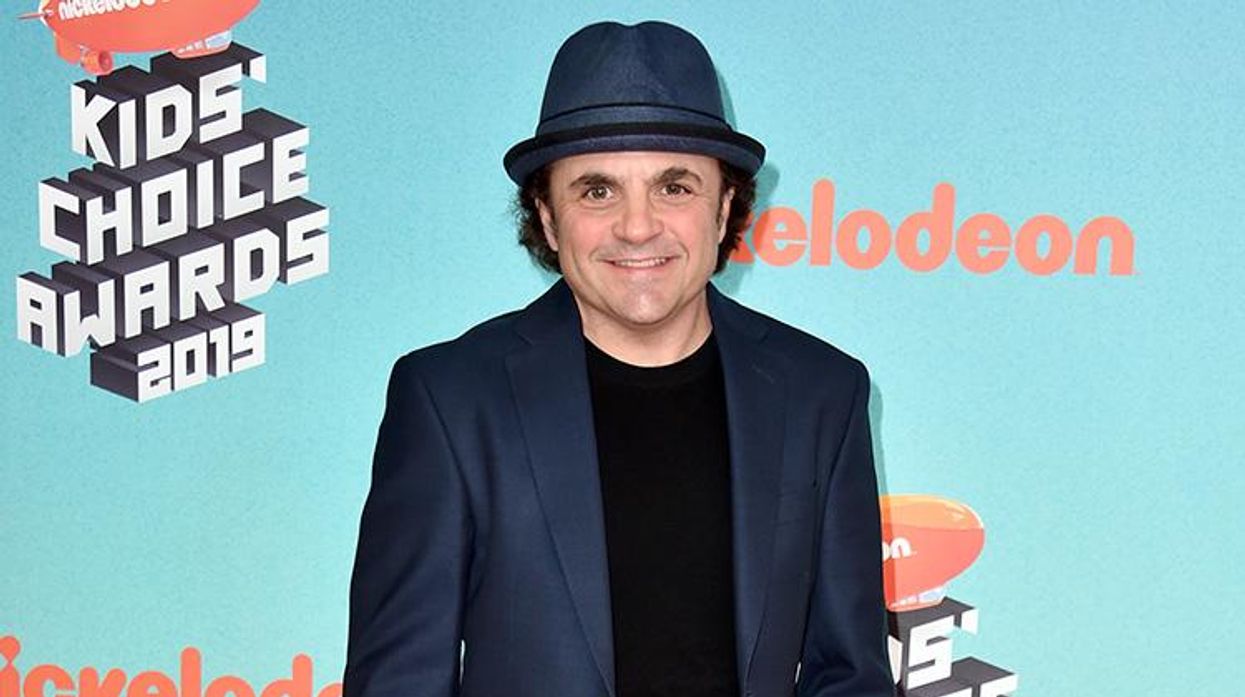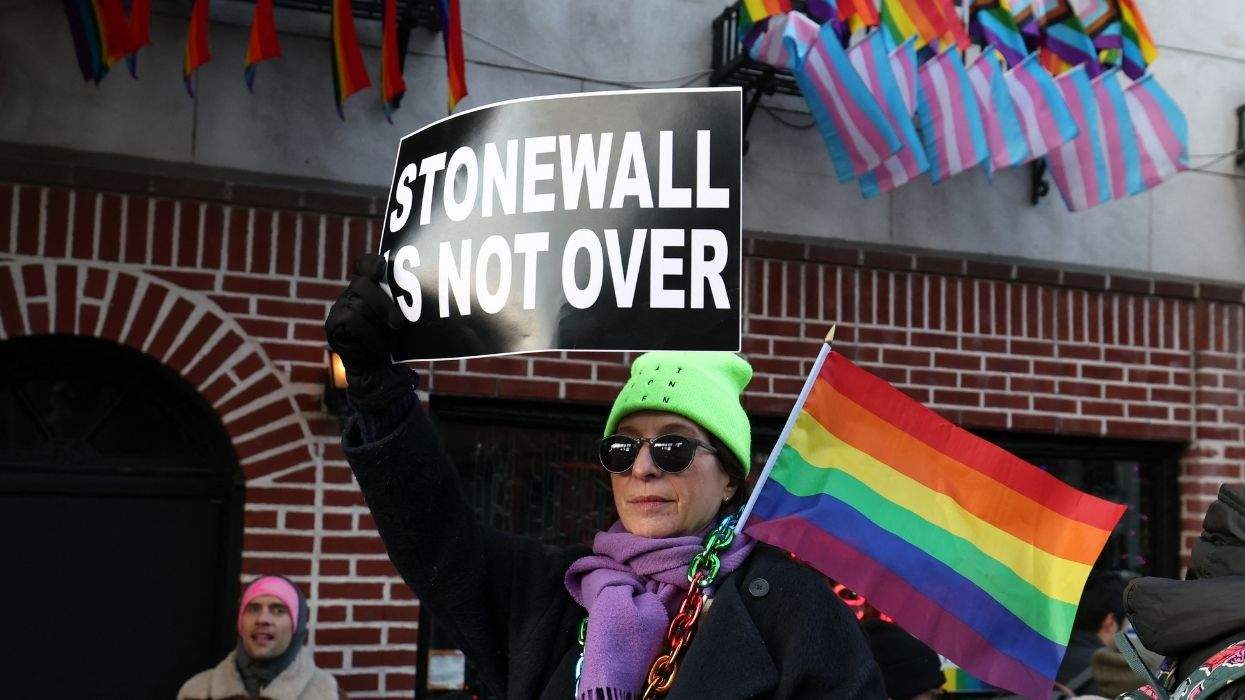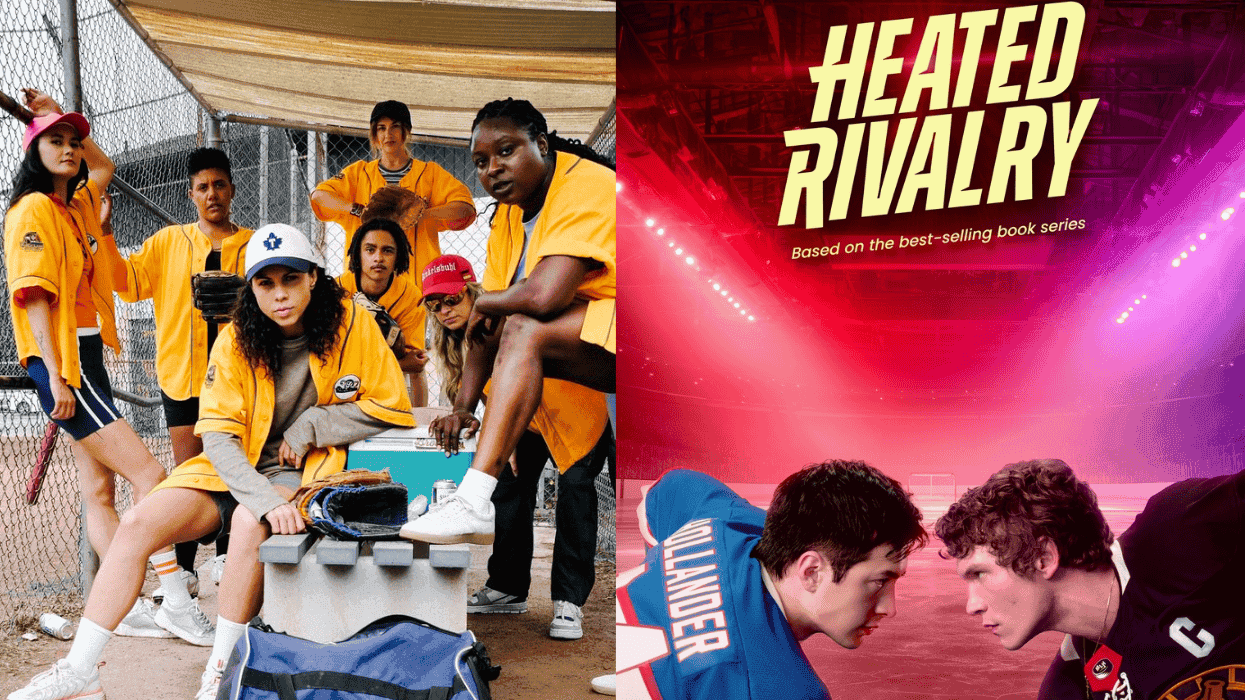This interview was conducted as part of the interview series, LGBTQ&A, a weekly podcast that documents modern queer and trans history.
Trans men exist; sometimes that feels like an important thing to remind people. While most people know who Laverne Cox, Janet Mock, and even Caitlyn Jenner are, the majority would have a harder time naming men of the trans experience.
When Michael D. Cohen recently shared with the public that he transitioned in 2000, he instantly became one of Hollywood's most visible men in the trans community. The actor, most known for his role on Henry Danger, the long-running Nickelodeon sitcom, hopes that by talking more publicly about his gender history, he's signaling to the kids who watch the show to "just be who you are, whatever that is."
[Click here to listen to the full podcast interview with Michael D. Cohen.]
Jeffrey Masters: You make a really important distinction, that not disclosing that you transitioned to everyone you meet is not the same thing as being in the closet.
Michael D. Cohen: People can get confused about that. I've never lived secretly. My transition's never been a secret. Have I chosen to disclose it in every single situation? No, because it's completely irrelevant to most situations.
So when people say "coming out," I'm like what does that mean exactly? Because what I'm sharing with you is my history. That's very different than coming out and for the LGBTQ+ community, the T has a different experience.
JM: And when you were coming out, any sign of gender nonconformity was likely labeled "gay."
MDC: Yeah. I definitely experienced gender dysphoria in a huge way. That was clear to me at a young age. That's pre-sexuality. That's pre-puberty. I had a sense that I had a different feeling for girls than I did for boys, but I was more aware of my gender than I was with my sexuality as a kid.
With gender, I knew who I was.
Then I go through puberty and sexuality kind of takes more of the foreground, right? I'm like, "Oh, wow. I think I have these funny feelings for girls. What's that about?" That was something you don't talk about. So that got pushed down as well.
It wasn't until later that I got the sexuality thing handled. I went, "Oh right. Women. Wow. Oh my God." The color just turned on in the world.
JM: It was that big a change?
MDC: It was huge for me. Huge. Because I finally discovered, "Oh, that's what everybody is talking about in all these songs." So that took more focus. But I remember saying this to my first girlfriend, "I don't feel like a lesbian. I know I'm not a lesbian." It took me a while to figure that out.
JM: When you're dating now, do you have a personal rule or timeline for when you disclose?
MDC: Yeah, mainly because I just feel like it's such a big part of my history. It's shaped me. When I'm with a woman, she has her period and I know...I hate saying this because I hated that experience, but I know what that's like. I have compassion for her in a way that no cis man could possibly have.
I'm really good with picking women somehow. They've just all been great. They just see it as an asset. They don't see it as, "Oh, this makes me question my sexuality," because they know I'm a guy. They experience me. They know it.
Could it be that women have more latitude, more freedom in that regard than a cis man with a trans woman? Women can be more fluid in their own self-perception. They never questioned it.
JM: I think there are fewer questions about their sexuality when a woman dates someone who is trans.
MDC: I think there's still questions because people don't understand, but they don't care so much what the answers are. They care more about the answers with the men. I don't know if the questioning is any different.
JM: Do you feel like you deal with safety issues around dating in the same way that trans women do?
MDC: We have different vulnerabilities. It's generally not a safety experience. But it all depends on who you're dating. I'm pretty careful. I'm scoping them out. I ask them about their politics before I disclose. I make sure that we're on the same page around politics, because if we're not, then I'm like, "Oh, okay. This may not go the way I want it to go."
JM: Was it in the back of your mind that coming out publicly at this large scale makes you instantly one of the most recognizable men in the trans community?
MDC: I don't know. I think what was really foremost in my mind was that in order for me to move towards my fullest actualization in this lifetime, I needed to do this. And knowing that only good could really come of that publicly. That I wasn't going to hurt anybody by doing that.
I'm very, very passionate about trans youth. I get choked up when I talk about it, because I know what it was like for me, and I don't want anybody to go through that. Being on a kids' show and having so many kids know who I am and what I do, they need to know that this is not only possible, but just be who you are, whatever that is. Be you. That's what I want kids to see from this.
JM: You've been working on your one-man show, Four Cubits Makes A Man for 15 years and said it wasn't till 2017 that you were ready to write the ending. What happened in 2017?
MDC: I think I realized that I can be legitimately a man even though the world perceived me as a girl for so long. I thought that my history docked me points. When I realized that, no, this is just a different route, and yeah, I'm as much a man as any cis guy is a man. It's not about your biological origins.
I have a cell biology background, so I think about science a lot. The thing that is binary is reproduction. People mix that up with gender and sex. Because reproduction is binary: you need a sperm, you need an egg, you need a womb. We have to have a sex that's male and a sex that's female in order to reproduce. That is not negotiable.
JM: And trans or not, that'll never change.
MDC: We can't change the way reproduction works. So I think on a very fundamental primal place, people who have transitioned have that baggage. For me, there's a lot of grief around that. It's not that I want to necessarily father kids. I don't have a driving need to have progeny with my genetics.
Yet I still understand there's a grief that comes with not having the ability to reproduce in a way. That's a profound kind of grief that I can't really explain. I have a hunch that other people have this, too.
JM: Most have the assumption is that trans people can't reproduce. Do you think people who have issues with the trans experience are tapping into that grief? It can feel like an attack on their worldview.
MDC: I've talked with trans women who just really have grief around not being able to bear children, but there's something more societal about this. There's something very primal about reproduction, obviously. It's one of the most primal things we can possibly do.
I really believe in primal energy. I believe the way that I know I'm a man is something that's very primal. The place that we're at in society with understanding gender identity has not quite fully understood itself. I think we have to introduce the misconception around biology, around reproduction, and where it intersects with gender identity in order to really move forward.
[Click here to listen to the full podcast interview with Michael D. Cohen.]
New episodes of LGBTQ&A come out every Tuesday, only on the Luminary app. Click here to listen.















Charlie Kirk DID say stoning gay people was the 'perfect law' — and these other heinous quotes
These are some of his worst comments about LGBTQ+ people made by Charlie Kirk.